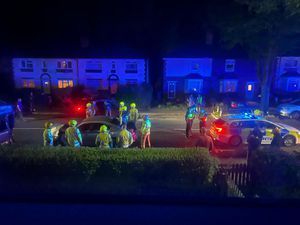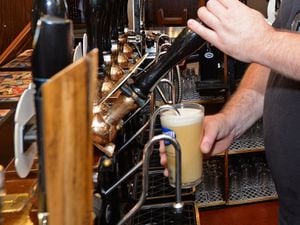Johnson: Lockdown measures could be eased from Monday
The PM will set out his roadmap for the next phase of the coronavirus response at the weekend.
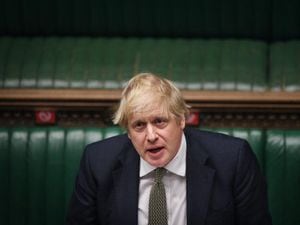
Lockdown measures could start being eased from Monday, Boris Johnson said as he set a new goal for increasing coronavirus testing capacity.
The Prime Minister marked his return to the Commons by setting an ambition for creating the capacity for 200,000 coronavirus tests a day by the end of the month.
In his first Prime Minister’s Questions since recovering from Covid-19 and the birth of his son Wilfred, Mr Johnson said he “bitterly” regrets the Covid-19 crisis in care homes and expressed frustration about problems supplying personal protective equipment (PPE).
Mr Johnson will set out plans for easing the lockdown in a speech on Sunday, with some measures possibly being introduced the following day.
“We have to be sure the data is going to support our ability to do this,” Mr Johnson said.
“That data is coming in continuously over the next few days. We want, if we possibly can, to get going with some of these measures on Monday.
“It would be a good thing if the people had an idea of what’s coming the following day, that’s why I think Sunday – the weekend – is the best time to do it.”
Downing Street stressed that “it is not going to be a case of flicking a switch” to lift all measures at once, instead “people will have to prepare for a different type of normal”.
In an indication of the changed approach, Public Health England signalled the “stay home” message could be abandoned.
A PHE spokesman said: “We are reviewing all communications materials in anticipation of moving to the next phase of the Government campaign.”
Ministers are also drawing up “detailed” plans for how workplaces can be adapted, outdoor spaces can be managed and public transport can operate.
Mr Johnson faced Labour leader Sir Keir Starmer in the Commons for the first time and was accused of being too slow to respond to the outbreak, leaving the UK with the highest death toll in Europe.
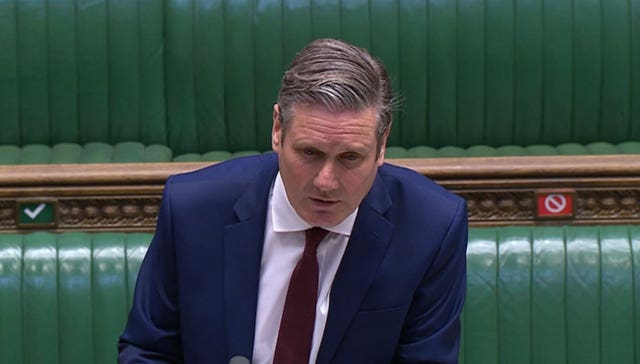
The Government met its 100,000-a-day testing target by the end of April but has failed to maintain that level in early May, with just 69,463 on Tuesday.
But Downing Street made clear the new target – unlike the previous goal – was for the capacity to conduct 200,000 tests rather than the number performed every day.
The route out of lockdown will rely on increased capacity as part of a test, track and trace programme, to quickly identify new cases of coronavirus and prevent the further spread of the infection, possibly by reintroducing restrictions in “micro-communities” where there is a new outbreak.
Although hospital deaths are falling, ministers and officials have struggled to get a grip on the crisis in care homes – where some of the most vulnerable people risk contracting the disease.
Mr Johnson said: “There is an epidemic going on in care homes which is something I bitterly regret and we have been working very hard for weeks to get it down and a huge amount of effort has been gone into by literally tens of thousands of people to get the right PPE into care homes, to encourage workers in care homes to understand what is needed.”
He said there had been a “palpable improvement” in the situation in care homes in recent days.
Sir Keir said problems with PPE supply are “going to get even more acute if and when the Government ask people to return to work” as more people will need masks and other protective kit to do their jobs.
Mr Johnson said “it has been enraging to see the difficulties we’ve had in supplying PPE to those who need it” but there was “a massive plan” to increase production in the UK.
Earlier, Health Secretary Matt Hancock suggested that as lockdown measures are eased the public could return to pavement cafes.
“There is strong evidence that outdoors the spread is much, much lower, so there may be workarounds that some businesses, for instance cafes, especially over the summer, may be able to put into place,” he told Sky News.
In a frank interview, Mr Hancock also said it would have been good if the UK had gone into the Covid-19 pandemic with the diagnostic capabilities of Germany, and added that experts are looking at how around two million people who are shielding can be given more freedom before a vaccine is found.
If the number of new cases can be kept down “we will be able to take clinical advice on whether it is safe for those who are shielded to, for instance, hug their grandchildren”, he said.
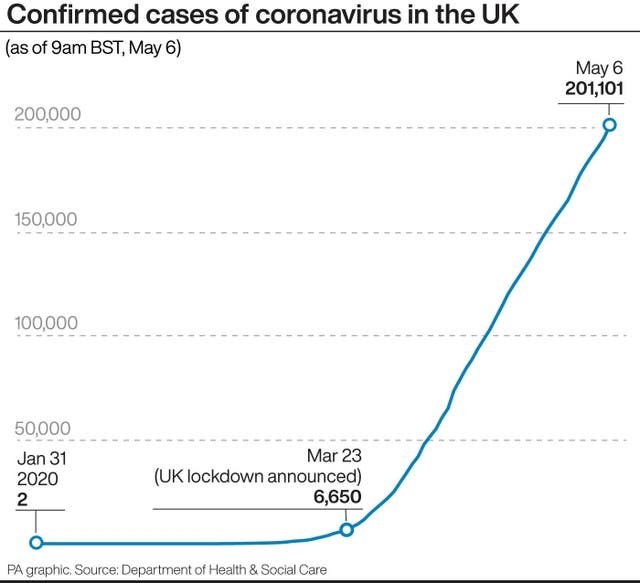
The latest figures from the Department of Health showed 30,076 people had died in hospitals, care homes and the wider community after testing positive for coronavirus in the UK as of 5pm on Tuesday, up 649 from the day before.
But the total number of deaths involving Covid-19 that have been registered across the UK currently stands at 32,898.
But Mr Hancock said people should be “very cautious” about comparing death tolls from different countries because of the UK’s large population and differences in whether fatalities outside hospitals are counted.
In other developments:
– Former Government adviser Professor Neil Ferguson, a key figure in influencing the lockdown, will not face further action by police after accepting he made an “error of judgment” by reportedly allowing his lover to visit him at his London home
– Mr Hancock said Prof Ferguson’s behaviour was “extraordinary” and he was right to resign as a member of the Sage panel of scientific advisers
– Heathrow is to begin temperature screening of passengers to reduce the risk of passengers contracting or transmitting Covid-19 while travelling
– More than 69,000 small businesses had loans approved under the Government’s new bounce-back loan scheme in the first 24 hours after it launched on Monday, the Treasury said.

